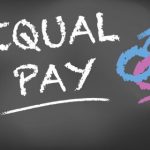There Are Now More Female than Male Lawyers in Australia

With the announcement of Belinda Rigg SC on her appointment as Senior Public Defender for New South Wales comes some good news for women in the legal profession.
New figures who that as a whole, the profession is making a great deal of headway in ensuring gender balance at senior levels.
Ms Rigg is the first woman to be appointed to the role of Senior Public Defender for New South Wales, and the announcement of her appointment comes at the same time as recent statistics showing that for the first time in Australia, women solicitors outnumber men in all states and territories, except Western Australia where the gender split is 50-50.
Women solicitors outnumber men
The data, from the National Profile of Solicitors Report also shows that across the profession, women now make up 52 per cent of solicitors, compared to 46 per cent in 2011.
The shift in gender balance is attributed to a greater number of women solicitors entering the legal profession compared to men, particularly since 2011.
But this is also a worrying time for the profession, with a recent survey by the International Bar Association showing that Australia has one of the highest rates of bullying and harassment amongst law professionals in the world.
The survey was open to respondents globally. Not only did Australia have the highest number of survey participants to the survey, but 30 percent reported that they had been sexually harassed in the workplace, compared with 21.8 per cent in the United Kingdom and 32.6 per cent in the United States.
Women lawyers in Australia reported higher rates of harassment and bullying than their male peers, at 47 per cent compared with 13 per cent of men. The global average was 22 per cent.
In the survey, more than 60 per cent of Australian respondents also reported that they had been bullied at work, compared with 51 per cent in the UK, 50.3 per cent in the US and 43 per cent globally.
The Law Council weighs in
The Law Council of Australia is greatly concerned about the figures and has written a submission to the Human Right Commission’s Independent inquiry into sexual harassment in the workplace, having itself found in the 2013 National Attrition and Re-engagement Study (the NARS) that approximately one in four women experienced sexual harassment in their legal workplace, and that it is a key reason for the high attrition rates amongst female practitioners.
A recent survey conducted by the Women Lawyers Association of NSW (WLANSW), suggests the figures could actually be much higher, with more than 70 percent of respondents to its survey saying they had been subjected to unwelcome touching, objectification and repeated advances in the workplace or at social events by managers, barristers and judges. Eighteen percent say they reported the issue. While these figures pertain to New south Wales, under-reporting is known to be a problem nation-wide.
So, the situation is not new and they show that while there has been a lot of effort put into raising public awareness of the issue and putting appropriate workplace policies in place, there is still a lot of room for improvement in the legal profession here in Australia.
Many believe that changing traditional male-dominated hierarchies and associated workplace cultures, and addressing gender inequality at senior levels, will go a long way towards dealing with the issues of sexual harassment and sexual discrimination and pave a smoother pathway for women lawyers to enjoy rewarding long-term legal careers.
Charter for the Advancement of Women
The Law Society of New South Wales, for example, is implementing its Charter for the Advancement of Women.
Launched in 2016, the Charter exists to promote and support strategies to retain women in the legal profession over the course of their careers and encourage and promote their career progression into senior executive and management positions.
The charter now has 167 signatories, who in agreeing to participate, declare a commitment to the advancement of women in the legal profession via a range of measurable practices and initiatives which cover a range of topics, including mentoring, diversity and inclusion in the workplace.
Victims of bullying, sexual harassment and other professional misconduct can report offenders to the Law Society’s professional standards department. Unacceptable behaviours could lead to an offender being barred from practicing.







